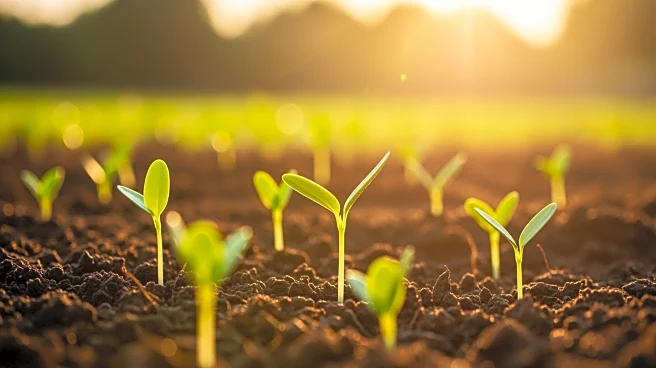What's Happening?
Agriculture is responsible for a significant portion of global greenhouse gas emissions, yet it is also vulnerable to climate change impacts. During COP30 talks in Brazil, agriculture is a key focus, with
discussions on transitioning to regenerative farming practices. These practices aim to achieve net zero emissions, restore biodiversity, and improve nutrition. Techniques include precise nitrogen fertilization, planting nitrogen-fixing legumes, and using methane-reducing additives for livestock. The goal is to reduce emissions, enhance soil health, and lower costs for farmers.
Why It's Important?
The proposed shift in farming practices could have profound implications for global food systems and climate change mitigation. By adopting regenerative practices, farmers can contribute to reducing emissions while improving soil health and biodiversity. This approach not only addresses environmental concerns but also enhances food security and nutrition. The integration of technology and sustainable practices could lead to more resilient agricultural systems, benefiting both farmers and consumers.









